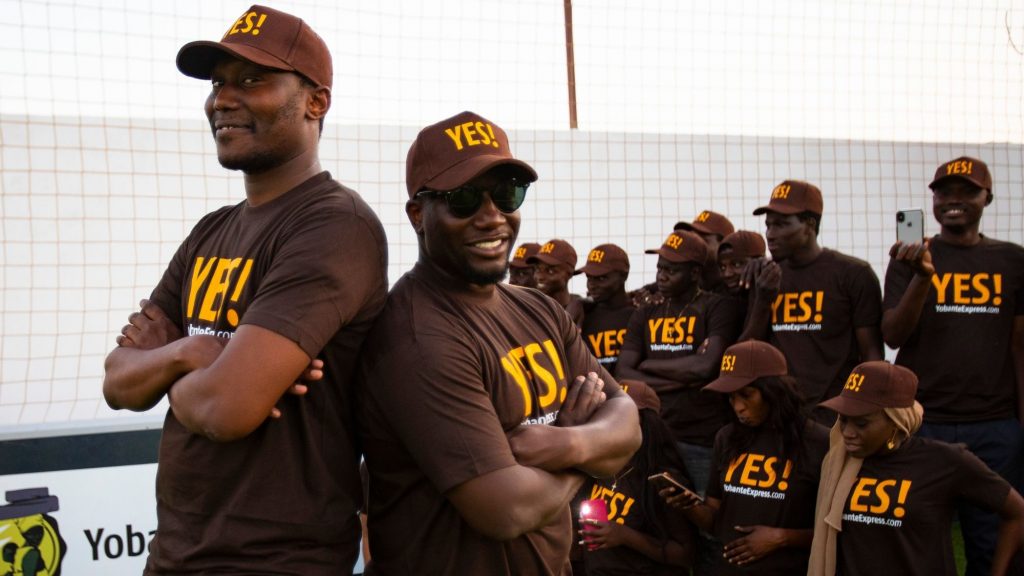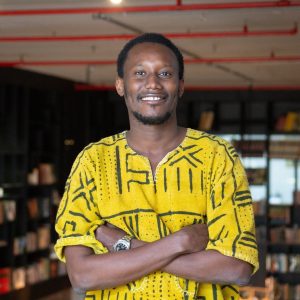In a move that signals a major leap forward in generative AI, OpenAI has quietly rolled out ChatGPT-5, its most advanced model to date….
From buses to taxis, Yobante Express shakes up shipping

What’s the biggest difference between Elon Musk and Oumar Basse? Unlike the richest man in the world, the co-founder and chief executive of Yobante Express did not have the luxury of simultaneously launching more than one start-up.
In hindsight, this proved to be a blessing in disguise. Today, Basse’s logistics start-up connects local couriers with local commerce to optimise domestic, cross-border and last-mile delivery in emerging markets. And it is slowly, but surely becoming Africa’s leading shipping solution.
At AfricArena’s recent West African summit, Yobante Express was announced as the best emerging entrepreneur. Basse chats to Ventureburn editor-in-chief Ivor Price ahead of the Viva AfricArena event at Station F in Paris, France.
You’re stuck in a lift with a potential investor who can help you to scale your business. How would you market your start-up to them?

Yobante Express leverages informal domestic shipment that has existed across Africa for centuries. Informal shipments are often made from region to region via informal public transport – including on the roofs of buses and taxis – and via people going in the same direction.
Since these shipments are ancillary to the vehicle’s main purpose. It is often substantially cheaper than dedicated shipments and do not require “full trucks” for efficiency. The unfortunate downside of informal shipment is the prospect of lost merchandise, non-existent customer service, and inability to track the shipment from send-off through to destination.
Yobante Express is the first logistics start-up in Africa to leverage this ancient form of shipment with a technology platform that enables complete trackability and customer service and reduces the prospect of lost or damaged merchandise.
Its business model is built on a resilient mesh network of existing relay points or hub agents and independent and casual carriers. The result is efficient and way cheaper and faster deliveries in cities, between cities and between countries.
It is no secret that technology has the potential to help solve many of the problems Africa is facing. What is the problem you are addressing through your start-up? And how do you measure its success?
Delivering a parcel from city-to-city in Africa can cost up to $40. Parcels are often lost with no accountability and no track-ability. Often, it can take up to three days for delivery. To solve this, we’re building the leading logistics tech venture in Africa.
Yobante Express, therefore, is an online marketplace that connects local couriers with local commerce to solve the biggest problems in emerging markets: domestic, cross-border and last-mile delivery.
Our web and mobile platform uses machine learning and gig-economy with over 1 600 independent and casual carriers and, a resilient mesh network of over 1 200 relay points or hub agents. They deliver packages for e-commerce, retailers, businesses and individuals at 40% cheaper, twice as fast and more efficiently than existing solutions.
We deliver over 150 000 parcels per month and we are live in 7 African countries. Our home market is Senegal, and we also operate in South Africa from which we deliver to Zimbabwe, Botswana, Nigeria, Ghana and Zambia. We are piloting in 14 more African countries and 4 European countries: France, Belgium, Italy and Spain.
What is the biggest personal challenge you have had to overcome to be in the right frame of mind to launch your business?
As a computer science engineer and a first-year Ph.D. student in machine learning with ten years’ experience in digital and a second-level start-up founder, the hardest choice I had to make was when I had to choose between my first start-up and Yobante – even before a full year of existence. It was quite challenging to leave my first “baby start-up” and to fully focus on Yobante. Unlike Elon Musk, I had to choose only one company and reach hyper-growth.
Thus far, what has been the biggest learning curve as an entrepreneur?
As a tech-savvy entrepreneur, I have learned a lot and continue to learn from my local and international network of entrepreneurs, colleagues, friends, partners, investors, and founders with various skills-sets in investment readiness, finance, accounting, law, logistics, and management. That helps me leap-frog and scale my business across the continent.
What does success mean to you?
With Land Grab, we are trying to establish first-mover advantage and reach critical mass in all 54 African countries. Once we get 15-20% of the market, then it quickly moves to virtual monopoly.
The Yobante Express platform and super model will allow us to deliver to more places at a lower cost versus any new competitor. For other competitors, they would rather just use our services versus trying to build a competing platform, which would take years.
Lastly, what was the biggest lesson learnt at the recent AfricArena experience in Dakar? And if you’re going to Viva AfricArena this June in Paris, what are you hoping to achieve there?
Corporates, investors and the audience loved when they heard us sharing our 5 000-year-old overnight success story during AfricArena in Senegal, our home country. We have a relay point in Châtillon (Hauts-de-Seine) in Paris and another near Charle De Gaulle Airport. We aim to onboard more relay points in Europe, engage with investors and partners to allow the African diaspora to send parcels from Europe to Africa and vice versa.
ALSO READ: Survey54 founder wants to be ‘top of mind on a global scale’

